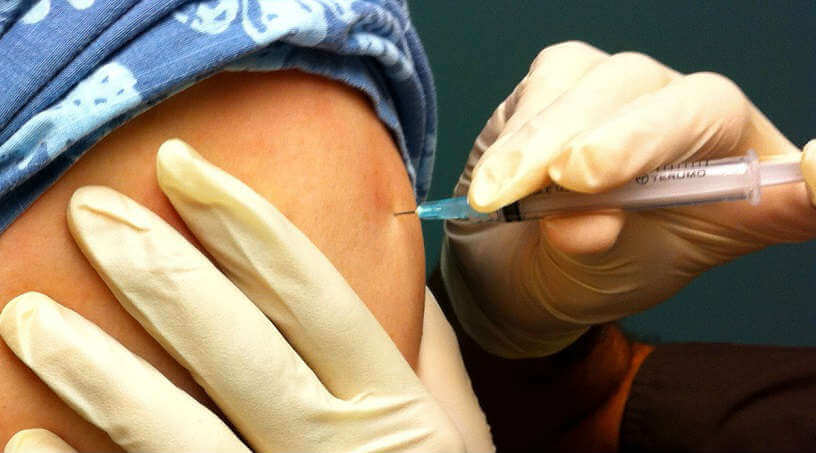10 countries you’ll need a polio vaccination to visit

Going on an extended holiday to a disease-prone country? It's a good idea to schedule a check-up at least eight weeks before you depart. Infectious diseases abroad can be very serious. Every year, Australian travellers become ill and die while travelling overseas. Take extra precautions when visiting these countries that you'll need a polio vaccination to enter.
Note: many of these countries are not recommended travel destinations (and some may be excluded by certain travel insurance policies). But here at Cover-More, we understand that not travelling is not always an option. If you must travel to these countries, be prepared and take full precautions.
What is polio?
Polio is a disease caused by a virus that affects the nervous system. It is spread by person-to-person contact, drinking water, or by eating contaminated food. Because polio is a virus, there is no antibiotic to cure it. Outcomes range from complete recovery to permanent loss of muscle function in the arms or legs to death.
When staying in a country with polio risks, it is recommended that you practice general safety precautions, on top of getting the vaccine. Remember to eat safe foods and drink safe beverages and to practice good hygiene. Carry sanitizer at all times, as soap and water may not always be available.
(Water safety is important to matter where you go. See our water safety YouTube playlist below for an in-depth look at water quality around the globe.)
Where do I need a polio vaccine to visit?
If you are not fully-vaccinated against polio (many Australians are vaccinated at a very young age), do not travel to the following countries. If you were vaccinated as an infant, be sure to get a one-time booster before departing.
Cameroon
According to the Global Polio Eradication Initiative, as of last year several cases of polio have been reported in Cameroon. If you are not fully vaccinated against polio, do not travel here. If you were vaccinated as a child, before entering the country it is suggested that you receive a single lifetime booster dose of the vaccine.
As of May 2014, people staying in Cameroon for more than four weeks may be required to show proof of polio vaccination. Make sure to get copies of your vaccination records from your doctor. The polio vaccine must be received between four weeks and one year before your departure date, so plan ahead.
Note: Smarttraveller recommends travellers exercise a high degree of caution when visiting Cameroon (and avoiding these two regions altogether: the far North region within 40 kilometres of the borders with the Central African Republic, Chad and Nigeria's Adamawa state, and the region within 40 kilometres of the border with Nigeria and the Bakassi Peninsula).
Equatorial Guinea
Central Africa remains at particular risk for the poliovirus. According to the Global Polio Eradication Initiative, as of last year several cases of polio have been reported in Equatorial Guinea. Much like Cameroon, as of May 2014, people staying in Equatorial Guinea for more than four weeks may be required to show proof of polio vaccination.
Note: unlike other countries on this list, Smarttraveller does not have any travel restrictions on Equatorial Guinea at this time.
Somalia
Somalia is also at increased risk for the poliovirus. According to the Global Polio Eradication Initiative, as of last year several cases were reported in Somalia. This is down drastically from the nearly 200 cases reported in 2013, but does not show a true decline in infection rate. Much like other afflicted countries, you must have proof of your vaccination if you are staying in the country more than four weeks.
Note: Smarttraveller recommends travellers reconsider holiday plans to Somalia.
Iraq
Despite a relatively small number of polio cases in the past few years, Iraq is still considered a polio risk by the Global Polio Eradication Initiative. Get a booster shot before travel and retain your vaccination records if travelling for more than one month.
Note: Smarttraveller recommends travellers avoid holiday in Iraq.
Other at-risk countries
Though the polio risks in these countries have decreased, it is still strongly recommended that travellers are up-to-date on vaccinations:
- Afghanistan
- Ethiopia
- Israel
- Nigeria
- Pakistan
- Syria
Note: Smarttraveller recommends you cancel travel to Afghanistan and Syria, reconsider you need to travel to Ethiopia, Nigeria and Pakistan, and exercise a high degree of caution in Israel.
At Cover-More, we know travel isn't always an option, but when it is we recommend you proceed with extreme caution. Stay informed about the issues in the countries you visit and stay safe in every scenario. When travelling, purchase travel health insurance to ensure you get the medical care you need should the unthinkable arise, but be sure to read your company's insurance product disclosure statement first, as some at-risk areas are not covered in traditional travel cover policies.
Image courtesy of Flickr user Blake Patterson; cropped from original
Planning a trip?
Discover Our COVID-19 Cover
To find out what our current* benefits do – and don’t – cover, please read:
Plus, for helpful destination-based COVID-19 information, don't forget to check the COVID-19 Travel Risk Tool before and during travel.
*The cover information contained on the above pages refers to Cover-More policies sold on or after 26 June 2023. For cover information on policies sold prior to this date, please read the relevant PDS.